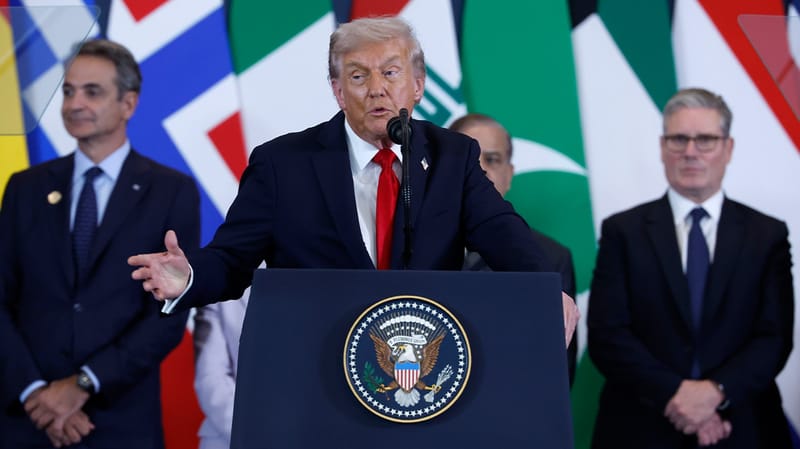Supreme Court Upholds Trump’s Transgender Military Ban in 6-3 Decision
Ruling Allows Discharge of Transgender Troops While Legal Challenges Continue The U.S. Supreme Court on Tuesday sided with the Trump administration, allowing the enforcement of a controversial executive order banning transgender individuals from serving in the military. The 6-3 ruling, which lifts a lower court’s nationwide injunction, permits
Ruling Allows Discharge of Transgender Troops While Legal Challenges Continue
The U.S. Supreme Court on Tuesday sided with the Trump administration, allowing the enforcement of a controversial executive order banning transgender individuals from serving in the military. The 6-3 ruling, which lifts a lower court’s nationwide injunction, permits the Pentagon to discharge approximately 4,200 transgender service members and reject new recruits while legal challenges to the policy proceed. The decision marks a significant victory for President Donald Trump, who has prioritized rolling back transgender rights since taking office in January 2025.
The unsigned order, typical for emergency appeals, provided no explanation for the majority’s reasoning. Justices Sonia Sotomayor, Elena Kagan, and Ketanji Brown Jackson dissented, indicating they would have kept the lower court’s block in place. The ruling stems from a lawsuit, Shilling v. United States, filed by seven transgender service members, including Navy Commander Emily Shilling, a pilot with 19 years of service, and a transgender man seeking to enlist. The plaintiffs argued the ban violates the Constitution’s equal protection clause, citing animus toward transgender people and a lack of evidence linking their service to military inefficacy.
#BREAKING: Supreme Court allows Trump administration to enforce trans military ban https://t.co/xaUs47zQWf
— The Hill (@thehill) May 6, 2025
Trump’s January 27, 2025, executive order revoked a Biden-era policy allowing transgender troops to serve openly, claiming that gender identity “conflicts with a soldier’s commitment to an honorable, truthful, and disciplined lifestyle” and undermines military readiness. A February Pentagon memo from Defense Secretary Pete Hegseth further classified gender dysphoria—a medical condition involving distress from a mismatch between one’s gender identity and assigned sex—as a disqualifying condition, effectively barring most transgender individuals from service. “No more pronouns, no more dudes in dresses,” Hegseth declared on X, reflecting the administration’s stance.
U.S. District Judge Benjamin Settle, a George W. Bush appointee, had blocked the ban in March, calling it a “de facto blanket prohibition” unsupported by evidence. Settle noted the military’s $20 million investment in training Shilling, who has flown 60 combat missions, as an example of the policy’s harm. The 9th U.S. Circuit Court of Appeals declined to lift Settle’s injunction, prompting the Trump administration’s emergency appeal to the Supreme Court. Solicitor General John Sauer argued that courts must defer to the military’s judgment on readiness and that the injunction usurped executive authority.
Supreme Court hands Trump major victory on transgender military ban despite liberal dissent https://t.co/Sv67Lhpl6D pic.twitter.com/Mn67AyULw5
— TheBlaze (@theblaze) May 6, 2025
LGBTQ+ advocacy groups, including Lambda Legal and the Human Rights Campaign Foundation, condemned the ruling as a “devastating blow” to transgender service members. “This policy has nothing to do with military readiness and everything to do with prejudice,” the groups stated, emphasizing that transgender troops have served honorably for nearly a decade. Shilling, in a statement, urged her peers to “stand tall,” affirming, “We are real people, doing real jobs, in defense of a nation we still believe in.”
Critics, including Shannon Minter of the National Center for Lesbian Rights, called the decision a “purge” unprecedented in U.S. history, predicting it will disrupt units and waste resources. Supporters, such as White House spokesperson Karoline Leavitt, hailed it as a “massive victory” for military excellence. Posts on X reflected polarized sentiments, with some celebrating the ban as a return to “readiness” and others decrying it as “bigoted” and “cruel.”
The ruling does not resolve the ban’s legality, which will continue to be litigated in lower courts. It follows a 2019 Supreme Court decision allowing a narrower Trump-era ban, later repealed by Biden. With a 6-3 conservative majority, the Court’s deference to military policy signals a likely uphill battle for the plaintiffs. As the nation grapples with this flashpoint in the culture wars, the decision underscores the ongoing tension between constitutional rights and executive power.




